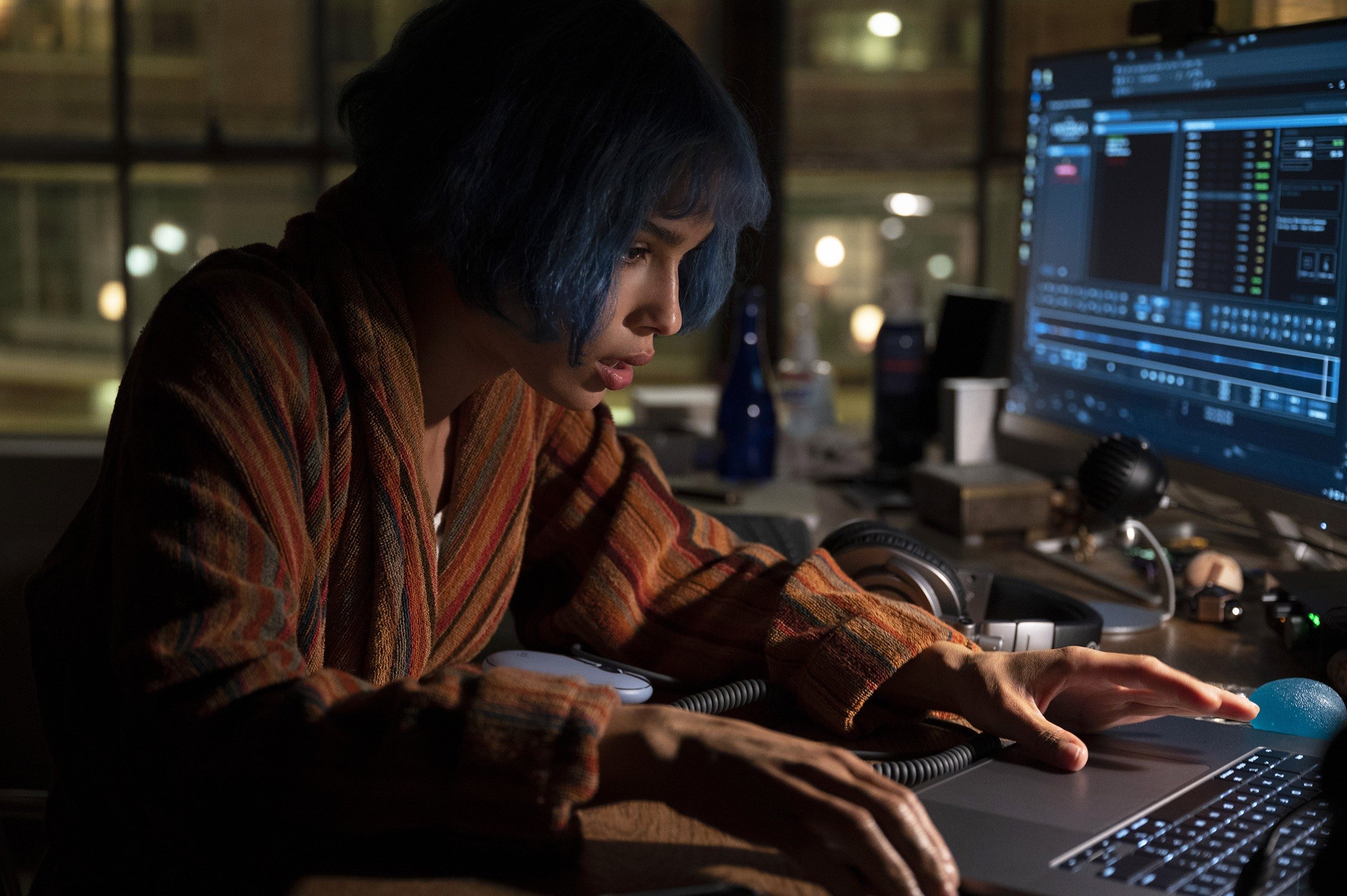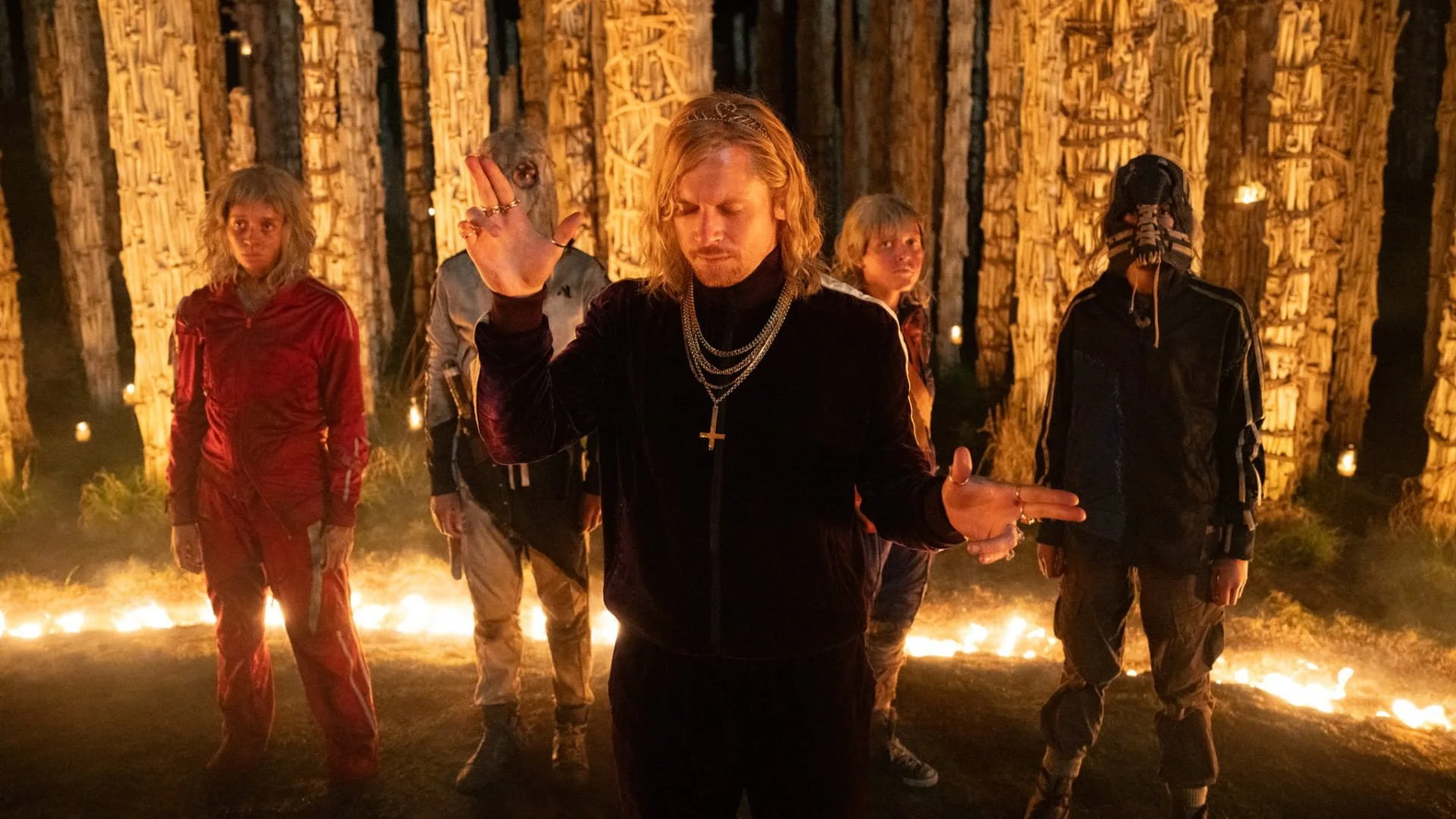Review: Kimi (2022)
It happens like clockwork: every new year, we get a new Steven Soderbergh genre film that lands, dependably, somewhere among “decent-to-good” on the movie-quality scale. His new COVID tech thriller, Kimi, has inventive camerawork, a credible lead performance from Zoë Kravitz, a fun hook, and a tight runtime. It’s a solid genre picture with some added novelty of taking place during the pandemic and dealing with some timely subject matter, including sexual assault. That said, it’s also hard to get too excited about a movie as routinely dependable as Kimi.
As stated, the hook is clever: in San Francisco during the pandemic, Kravitz’s Angela Childs works from home monitoring data streams from a tech company that makes the smart speaker, Kimi—think of it as a competitor to Google Home or Amazon Alexa. One day, she comes across a flagged audio stream from a Kimi which sounds like a violent sexual assault. She brings it to the company’s attention, but flagging the issue puts her in the crosshairs of powerful people who want the information to go away.
At its best moments, David Koepp’s script plays a bit like The Conversation for 2022, where we watch and listen with patience as Angela sorts through data streams and uncovers a conspiracy. These moments take advantage of Soderbergh’s penchant for audio and visual experimentation, which allows Angela’s paranoia to seep into our experience of watching the film. For instance, during the data monitoring sequences, Soderbergh uses immersive soundscapes that are muffled and dull that tie us to Angela’s experiences; it’s as if whole sequences are heard through noise-cancelling headphones.
When Angela does actually leave the apartment to go to Kimi headquarters, we’re subjected to a different level of paranoid anxiety: the emotional kind. As added backstory, Angela suffers from anxiety and agoraphobia due to past trauma. This is only exacerbated by the COVID-19 pandemic, so when she leaves the apartment, she’s on the verge of a panic attack the entire time. Soderbergh stutters the frame rate and uses jittery, low-angle shots to track Angela as she moves through the city from her apartment to the office HQ. Kravitz’s hyperactive physicality accentuates the anxiety of these moments. It’s an impressively physical performance. When she walks through the city, she does so keeping her head down, her body rigid and rushing forward, as if physically relaxing will make her victim to the threats swirling around her in her head.
But of course, there are real threats, in a more general sense (COVID), and in a particular sense (the conspiracists who want to kill her to keep their crimes a secret). Thus, Kimi takes the paranoia of our new digital age, of living during a pandemic, and of being a woman and swirls it all up into a little genre picture that is undeniably topical. Whether that topicality outlasts the pandemic (if it ever truly ends) remains to be seen, but you can understand people finding the timeliness of Kimi exhilarating and terrifying. It taps into an emotional state all too familiar to many people nowadays.
And yet, for all the topicality and visual and audio experimentation, I never found Kimi truly enthralling. Not a single narrative twist is surprising or even played up for drama. Rather, the plot simply plays out and things wrap up, which does seem to be the approach for most present-day Soderbergh films, as he is far more enamoured of his technical experimentations than original storytelling. Kimi is most interesting in its style, not its story. In this way, it’s almost an inversion of No Sudden Move, which had a strong script held back by Soderbergh’s tendency to experiment visually.
Here, Soderbergh’s style matches the film’s tone, but the script is pretty basic when it comes down to it, a new wrapping on a familiar present. There are also some inexplicable moments that are never truly addressed. These aren’t plot holes, per se, but simply little nitpicks that reduce the credibility of the film. Chief among these is the question of how Angela owns an enormous loft apartment that seems 8,000 square-feet large and would cost nothing less than $5 million in San Francisco at market value. It’s a killer space, but we never learn whether Angela is rich, and if she is, why is she working for Kimi? I know the apartment is in the film for aesthetic impact, but never addressing it at all shows the rather casualness of the film’s narrative presentation.
Still, at 89 minutes, Kimi is certainly worth a watch. And as evidenced by reviews on Letterboxd and Twitter, it has worked well for others, so you may find it more enthralling than I did. At the very least, I’m glad Soderbergh continues to put out solid movies like clockwork. I’m simply left wondering when he’ll ever put out another great one.
6 out of 10
Kimi (2022, USA)
Directed by Steven Soderbergh; written by David Koepp; starring Zoë Kravitz, Betsy Brandley, Rita Wilson, India de Beaufort, Emily Kuroda, Byron Bowers, Alex Dobrenko, Jaime Camil, Devin Ratray, Andy Daly.



This mockumentary starring Matt Johnson and Jay McCarrol is a complex metafiction farce and a loving portrait of friendship and Toronto.